Searching for “Writing Culture” across UVA
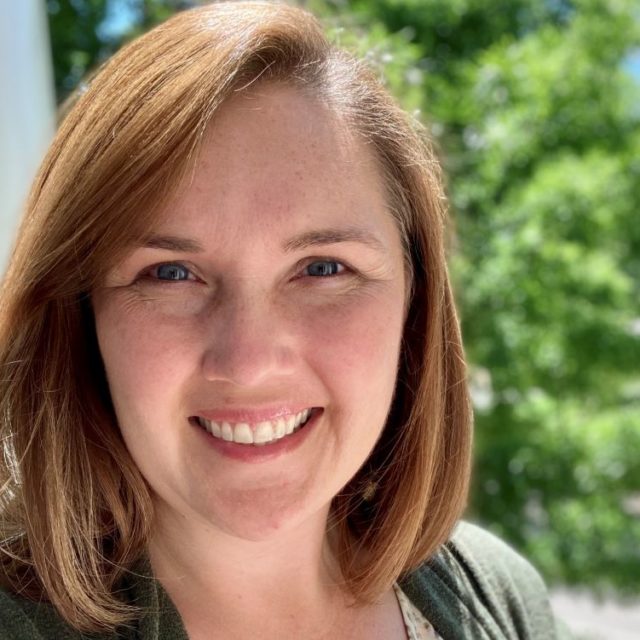 Heidi Nobles is an assistant professor of writing and rhetoric in the Department of English at the University of Virginia. She currently teaches courses in mixed-methods research and writing; literacy and cognition; and history and culture of writing at UVA; she also co-instructs the Graduate Instructor Seminar in the Teaching of Writing and serves as Associate Director of Writing Across the Curriculum.
Heidi Nobles is an assistant professor of writing and rhetoric in the Department of English at the University of Virginia. She currently teaches courses in mixed-methods research and writing; literacy and cognition; and history and culture of writing at UVA; she also co-instructs the Graduate Instructor Seminar in the Teaching of Writing and serves as Associate Director of Writing Across the Curriculum.
Searching for “Writing Culture” across UVA
In Spring 2021, a group of students and I set out to investigate the “culture of writing” at UVA. We sent out an informal survey to UVA undergrads, asking questions like “What, if anything, does the phrase ‘culture of writing at UVA’ mean to you?” and “How do you think you are influencing that writing culture, and in what ways?”
“I only do engineering writings”—Writers Who Don’t Know That They Write
Out of 49 responses to the first question, 25 indicated no sense of our institution’s writing culture, with comments such as “Never heard of it”; “No clue”; “Nothing unless you’re in English”’; and “As an engineering student, I’m largely unfamiliar with the ‘culture of writing at UVA,’ though I know it is a rich and storied tradition at this institution.”
 18 of those 49 respondents also reported that they did not believe they were influencing UVA’s writing culture at all, writing things such as, “I don’t think I am since I’m not really writing anything significant at UVA, just papers I have to,” “I only do engineering writings,” and “I’m in physics but I do write about cats in my engagement.”
18 of those 49 respondents also reported that they did not believe they were influencing UVA’s writing culture at all, writing things such as, “I don’t think I am since I’m not really writing anything significant at UVA, just papers I have to,” “I only do engineering writings,” and “I’m in physics but I do write about cats in my engagement.”
Many of the students in my class—a newly launched, special topics in writing course titled “History and Culture of Writing at UVA”—expressed dismay.
We were simultaneously studying the robust history of writing affiliated with UVA, which includes of course world-changing social and political publications going back two hundred years, as well as searing works of art by many of our faculty members. We were perhaps most delighted, though, by the rich collection of student writing that also goes back to notebooks and letters as early as the first decades of the 1800s, and on through papers and records still being produced today. We studied what writing reveals about a culture, and how writing changes a culture. By the end of the term, all the students created vibrant original works of their choice (including several poetry collections, two short stories, a photo journal, and a traditional essay) to donate to Special Collections as artifacts for their generation.
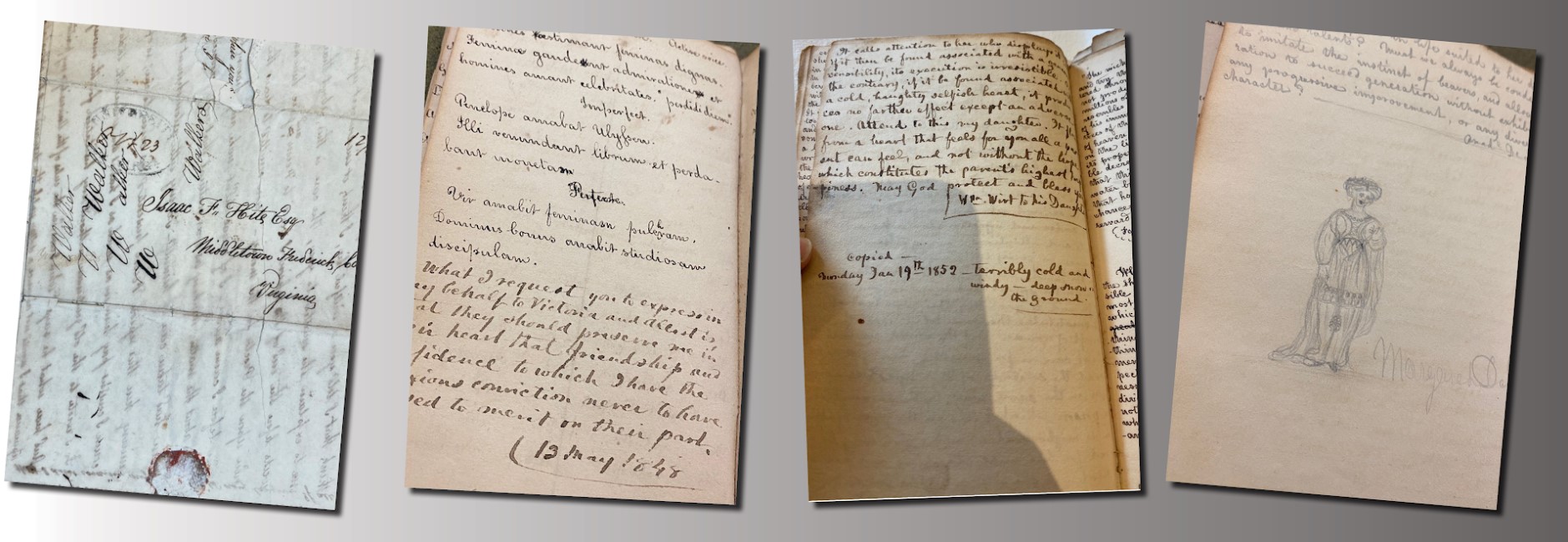
Within this context, my students seemed a bit deflated by the lack of enthusiasm from their peers. We did conduct 2 follow-up surveys with current UVA undergrads—another informal version, with modified questions to better invite the types of responses we’d hoped for, and an official survey conducted by UVA’s Office of Institutional Research and Analytics. Those both generated useful and more encouraging data.
I, for my part, found the original survey quite reflective of my experiences as Associate Director of Writing Across the Curriculum. In that capacity, I meet regularly with faculty and students in every department and School across Grounds, discussing how writing does or doesn’t happen with them. One recurring set of misconceptions revolves around what writing is. I frequently hear that people “don’t write,” only to learn a few minutes later about demanding lab reports, rhetorically difficult policy memos, or multifaceted field notebooks. They seem to mean that they don’t create traditional academic essays or lyrical creative pieces, but they are clearly writing in ways that are appropriate to their lives and work.
Reconsidering “Writing”—And How It Changes Us
Writing is an interesting thing to discuss because it is both object and activity. We can study and generate crafted texts-as-objects, but writing as an activity is a powerful cognitive and social tool. Walter Ong famously declared that “writing restructures consciousness”—that when literacy enters a formerly oral society, there’s no going back.[1] Every one of us reading these words engages writing in some form every day, and that truth changes us all.
The activity of writing—whether we’re creating a poem (as a significant portion of our undergraduates do on their own time, per our more statistically reliable survey), writing an argument, doodling during a class or meeting, or yes, creating lab reports or policy memos or field notes—transforms us, often without our conscious realization.
 I define writing broadly, as an act of transcription, of using a tool (a pencil or a laptop, for example) to put some sort of idea into a symbolic written form. We usually associate writing with alphabetic or logographic systems, though numeric and other symbol systems are also forms of writing. In any of these, we write because of complex processes in our cortical and limbic systems that are intimately bound up with our identities.[2] And because our brains are plastic, our brains shape our capacities—but our writing activities also shape our brains and ourselves.
I define writing broadly, as an act of transcription, of using a tool (a pencil or a laptop, for example) to put some sort of idea into a symbolic written form. We usually associate writing with alphabetic or logographic systems, though numeric and other symbol systems are also forms of writing. In any of these, we write because of complex processes in our cortical and limbic systems that are intimately bound up with our identities.[2] And because our brains are plastic, our brains shape our capacities—but our writing activities also shape our brains and ourselves.
Knowing the power that writing holds convinces me of its value in every discipline. For anyone undertaking new material, writing about content—whether in an essay or a short exam answer or a field notebook—is one of the most effective ways to truly learn. Taking notes during a lecture records information (and we know that the brain retains handwritten material more effectively than typed[3]), but putting things “in your own words” (or numbers, or sketches, or diagrams) does far more to encode material, building critical synaptic connections with the meaning-making centers in your brain.[4]
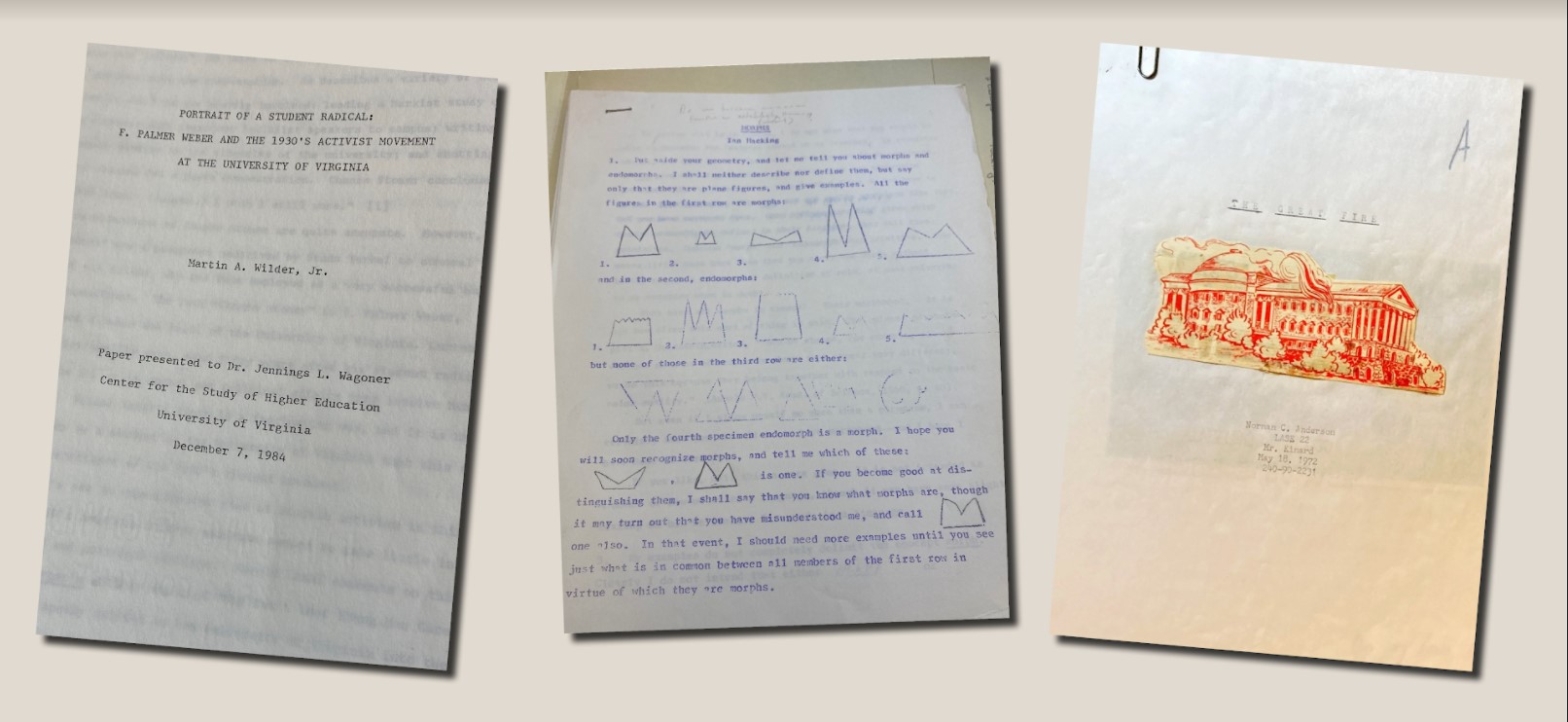
Writing in one’s discipline also provides urgent opportunities for finding one’s own voice and approach within a field, in terms of vocabulary, research approaches, evidence, and more.[5] For these and many other reasons, I believe in developing vigorous, discipline-appropriate, writing activities across disciplines. (Even for engineers and physicists, when they want to. Though they’re welcome to also write about cats.)
Put simply, we need language to be able to think.[6] Neurologist Oliver Sacks reflected on his own lifetime of writing this way:
“It seems to me that I discover my thoughts through the act of writing, in the act of writing. . . . I started keeping journals when I was fourteen and at last count had nearly a thousand. They come in all shapes and sizes, from little pocket ones which I carry around with me to enormous tomes. . . . [F]or the most part, I rarely look at the journals I have kept for the greater part of a lifetime. The act of writing is itself enough; it serves to clarify my thoughts and feelings. The act of writing is an integral part of my mental life; ideas emerge, are shaped, in the act of writing.”[7]
He is hardly alone. One of my own favorite activities is to find and read others’ drafts and notes for work later published or unpublished. Many of these are scattered in special collections across the globe (so the adventure of discovery admittedly is part of the fun), but if you’re interested, you might enjoy checking out the work-in-progress documented in things like Da Vinci’s notebook facsimiles[8] or the collection of naturalist field notebook entries in Michael Canfield’s Field Notes on Science and Nature.[9]
Interestingly, in our official survey, 35 percent of respondents recognized this advantage—17 percent said they write on their own time “to help me think through complicated things” and another 18 percent said they do it “to express my ideas to myself.” Writing, in other words, is not something we do once we have figured things out; we figure things out while we are writing.
Writing to Learn, Writing for Change—Early Sections of the UVA Writing Puzzle
Our Spring 2021 course put together a far bigger part of the “writing culture at UVA” puzzle than I had expected to manage in one semester, in large part due to the diligence, energy, and intelligence of the enrolled students. I will teach that course for at least two more semesters, and we will continue to piece together this critical vision of who we are.
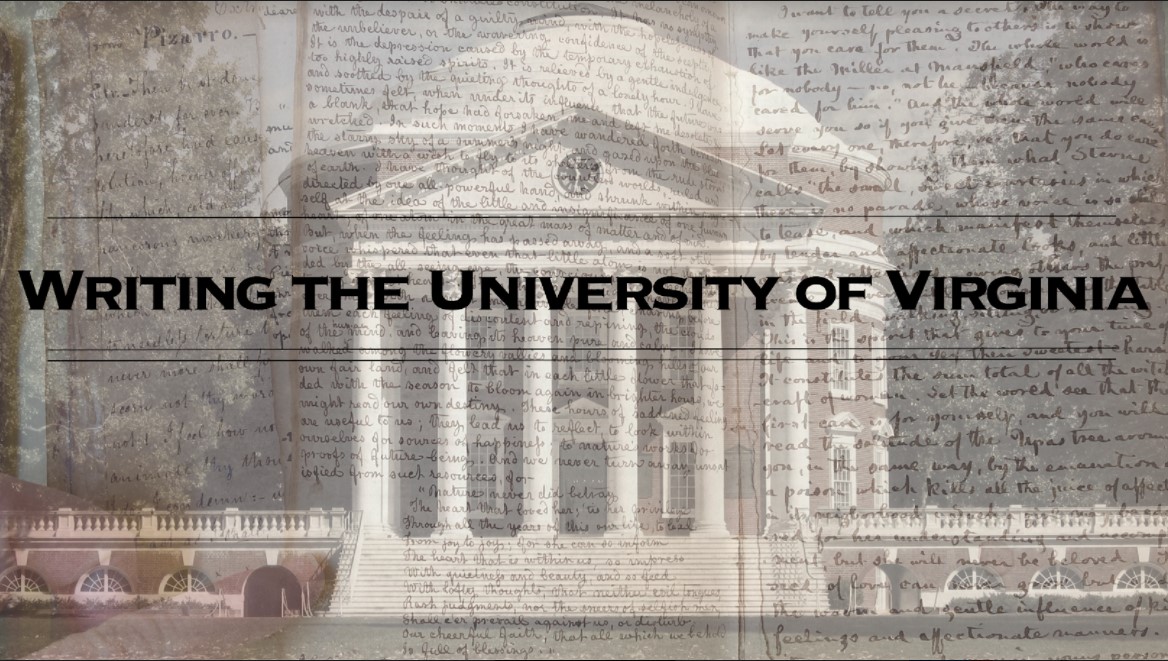
You can see our gallery-in-progress here; it contains most of the students’ essays arguing for a range of perspectives on our writing culture, along with exhibits of UVA’s past and present writing activity. Future students and I will continue to build and curate that gallery through Summer 2022, and then we will donate all its contents to UVA’s Special Collections. Not surprisingly, so far, we have found that UVA does not have a singular “culture of writing,” but there are important subcultures and trends that warrant more attention.
We interviewed faculty and students and staff who all see and practice writing in different ways, from faculty who teach both academic and creative writing, or use writing extensively in their “content” courses, to an editor from UVA Press, to student editors of student-run journals, to distinguished majors writing creative theses, to students who had to be convinced that their chemistry notes were relevant. We saw meticulously written drafts from Jefferson and Faulkner; read memoirs from enslaved workers that shed light on the many narratives that weren’t written down as literacy was withheld along with its social power; looked at old yearbooks and manifestos and current social media and Beta Bridge and messages hung on residential doors or chalked on sidewalks.
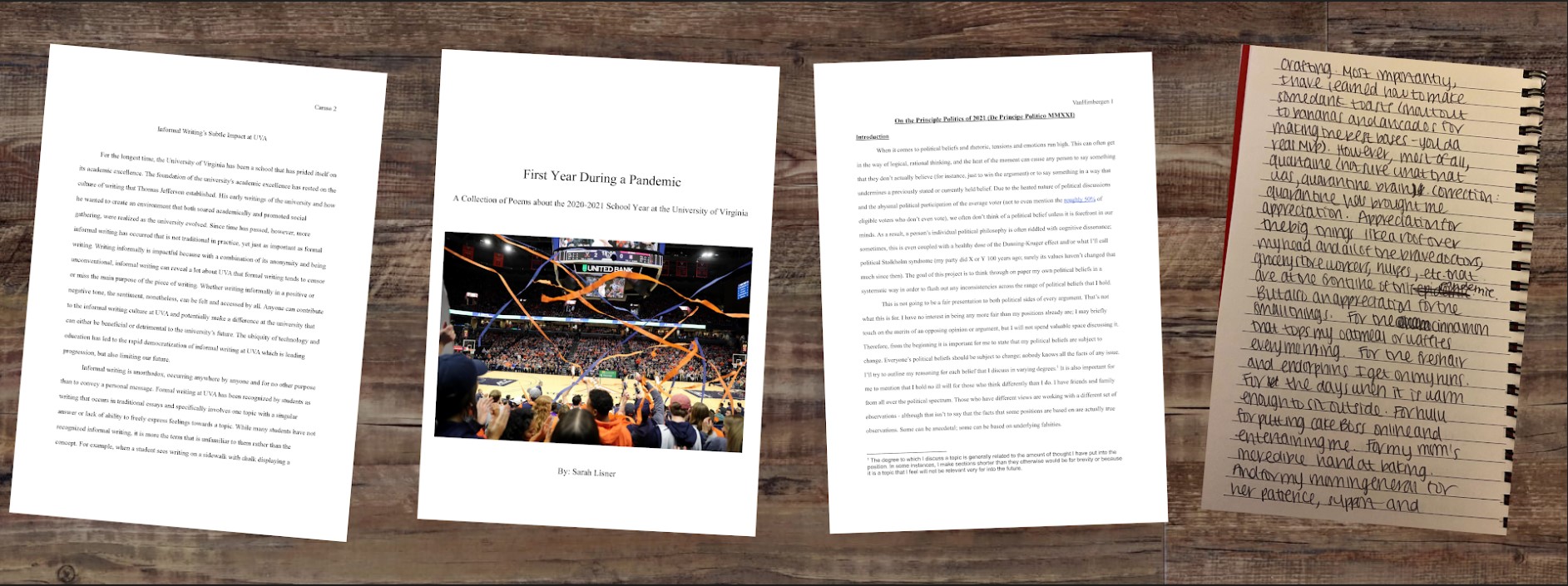
All of these and more are part of our university’s story of writing, showcasing the dramatic role writing continues to play in making us who we are. For what it’s worth, I came away from these first months of examining our writing past and present with the sincere impression that we are currently closer than ever to the best ideals upon which we were founded.
*If you would like to send your thoughts on your own writing experiences at UVA, we’d love to collect them. Please feel free to email me at heidi.nobles@virginia.edu.
Continue your education with Lifetime Learning’s online resources available to alumni, parents, and friends.
The Thoughts From the Lawn (TFTL) blog is published by Lifetime Learning at the University of Virginia’s (UVA) Office of Engagement. This platform features UVA faculty and staff articles for the benefit of UVA’s alumni, parents, and friends. The views expressed in TFTL blog posts reflect the views of the authors and not those of Lifetime Learning. Lifetime Learning reviews the content and links in each article before publication; however, we take no responsibility for inaccurate information and/or links that lead to post-publication, unintended sites. Lifetime Learning is not responsible and will not be held liable for blog comments and reserves the right to remove malicious or mean-spirited responses.
[1] Walter Ong, Orality and Literacy (Methuen, 1982).
[2] Neurologist Alice Flaherty discusses this duality effectively in The Midnight Disease: The Drive to Write, Writer’s Block, and the Creative Brain, Mariner Books, 2005.
[3] See for examples Pam A. Mueller and Daniel M. Oppenheimer, “The Pen is Mightier Than the Keyboard: Advantages of Longhand Over Laptop Note Taking,” Psychological Science, 2016, vol. 25, iss. 6, pp. 1159-1168; and Simon R. Horbury & Caroline J. Edmonds, “Taking Class Notes by Hand Compared to Typing: Effects on Children’s Recall and Understanding,” Journal of Research in Childhood Education, 2021, vol. 35, iss. 1, pp. 55-67.
[4] For two engaging sources here, see Robert P. Parker and Vera Goodkin, The Consequences of Writing, Heinemann, 1987, and William Zinsser, Writing to Learn: How to Write—and Think—Clearly About Any Subject at All, Harper, 1993.
[5] See for example Michael Carter, “Ways of Knowing, Doing, and Writing in the Disciplines, College Composition and Communication, 2007, vol. 58, iss. 3, pp. 385-418.
[6] See for example Ray Jackendoff, “How language helps us think,” Pragmatics & Cognition, 1996, vol. 4, iss. 1, pp. 1-34. For potentially more entertaining takes on the relationship between language and thought, consider Lera Boroditsky, “Lost in Translation,” Wall Street Journal, July 23, 2010; and Helen Keller, “The Day Language Came into My Life,” in The Story of My Life, Doubleday, 1903.
[7] Oliver Sacks, On the Move, Vintage, 2016, pgs. 190, 383.
[8] Many facsimile editions are available for purchase, some at reasonable prices—for example, the Leicester Codex, which has been nicely reproduced and edited by Claire Farago, Royal Academy of Arts, 1996. Walter Isaacson’s masterful biography of Leonardo also includes a satisfying number of reproductions with thoughtful analysis around them (Simon & Schuster, 2018).
[9] Harvard University Press, 2011.
- Guastavino Tile at the University of Virginia
- Abraham Lincoln on Character, Leadership and Education
- Silence is Golden: Celebrating the History of Silent Films
- Virginia Club of New York x The Essay Conqueror: The College Essayscape
- UVA Club of Los Angeles: Influential Communication
- 125 Years of Army Nursing: Learning from the past to shape the future